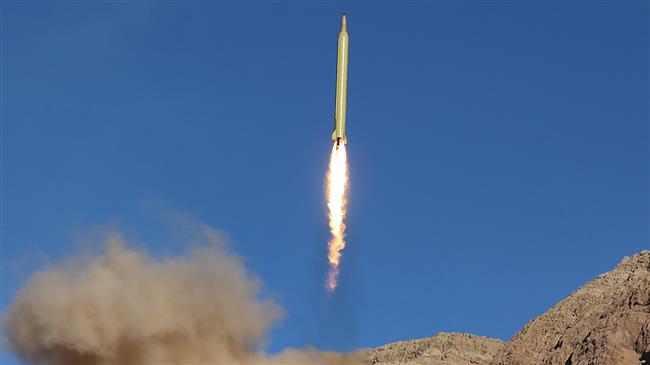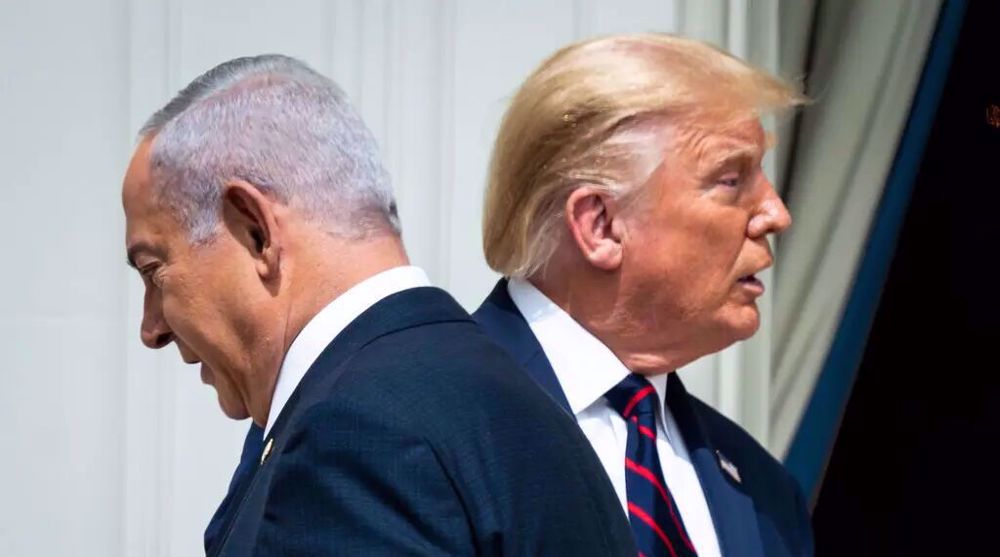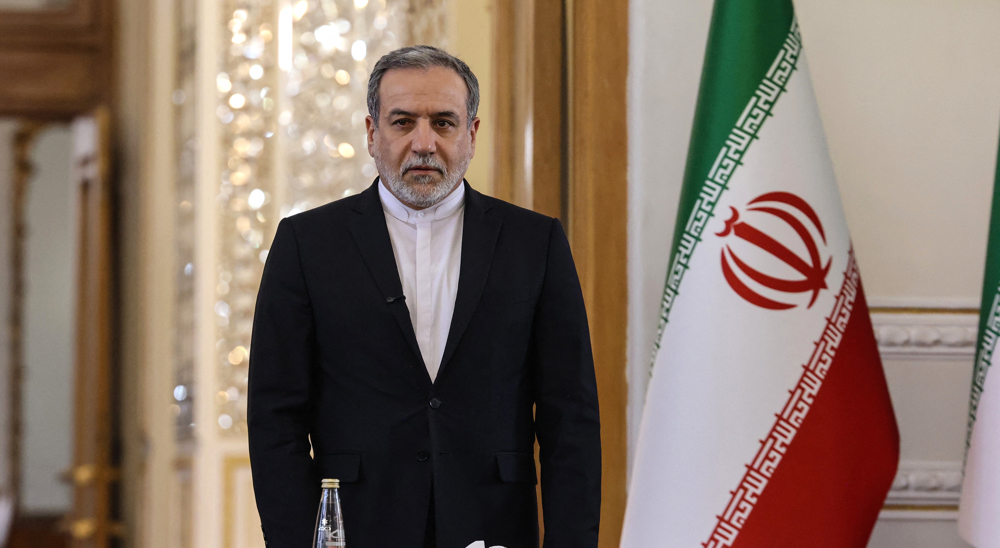Iran says missile program defensive, not up for negotiations
Iranian Foreign Minister Mohammad Javad Zarif says the country's missile program is solely for defensive purposes and is not up for negotiations.
"First of all, Iran's missiles are for defense and we need them for deterrence. We use resources for military expenses far less than any country in the region and that’s why we have announced from the very beginning that our missiles are non-negotiable," Zarif said in an interview with the Doha-based Al Jazeera broadcaster on Saturday.
Zarif, who is in Qatar to attend the Doha Forum 2018, made the remarks in response to a question about US Secretary of State Mike Pompeo's allegation in a post on his Twitter account on December 1, who claimed that Iran had "just test-fired a medium range ballistic missile" in violation of United Nations Security Council Resolution 2231.
Pompeo condemned as "growing" Tehran's "missile testing and missile proliferation," and called on the Islamic Republic to cease these activities.
UN Security Council Resolution 2231 enshrined the 2015 international nuclear agreement, officially known as the Joint Comprehensive Plan of Action (JCPOA), from which Washington has withdrawn under the pretext, among others, that it should have included Iran's missile program as well.
Under the deal, reached between Iran and six major powers -- the United States, Britain, France, Germany, Russia and China, Tehran agreed to put limits on its nuclear program in exchange for the removal of nuclear-related sanctions.
The Iranian foreign minister rejected the US claims against Tehran and said Washington had explicitly violated Resolution 2231 by pulling out from the JCPOA and was "not in a position to speak about that resolution."
Zarif added that Resolution 2231 did not prohibit Iran from testing missiles but had banned the Islamic Republic from testing missiles aimed at carrying nuclear warheads.
This is while the International Atomic Energy Agency (IAEA) has verified that “Iran's missile activities are for peaceful purposes," the top Iranian diplomat pointed out.
In an interview with Tasnim news agency on Tuesday, Zarif said UN Security Council Resolution 2231 had not imposed any ban on Iran’s missile program.
"As the foreign minister, I can say that the issue of missiles has never been subject to negotiations between Iran and its [opposite negotiating] sides," Zarif said, adding, “Our defense doctrine is basically based on deterrence and defense, not offensive [purposes].”
Iran's Defense Minister Brigadier General Amir Hatami said on December 2 that the Islamic Republic was currently one of the world’s topmost missile powers despite being subject to severe sanctions during the past 40 years.
“Today, Iran is among the world’s topmost powers in building missiles, radars, armored vehicles and unmanned aerial vehicles (UAVs),” the Iranian defense minister said in an exclusive interview with IRNA, emphasizing that Iran's defense power was meant to send the message of peace and friendship to other nations.
Read more:
- Iran’s latest ballistic missile test significant: Senior IRGC commander
- Iran intends to increase missile, ammunition range: Air Force commander
- ‘Iran’s ballistic missile program in full compliance with UNSC Resolution 2231’
- Iran will continue to test, develop deterrent missiles: Commander
Iran FM, Qatar PM discuss ties, regional issues
Also on Saturday, the Iranian foreign minister and Qatari Prime Minister Abdullah bin Nasser bin Khalifa Al Thani held talks on a range of issues, including ways to boost mutual relations.

Zarif and Al Thani also exchanged views about regional security and stability and expressed their support for the UN-brokered peace talks on Yemen, which were recently held in Stockholm, Sweden.
UN Secretary General Antonio Guterres said on Thursday that the Yemeni warring parties had reached an agreement on a ceasefire in the Red Sea port city of Hudaydah.
The UN chief made the announcement shortly after the delegations of Yemen’s Houthi Ansarullah movement and the country’s former Saudi-backed government agreed that the world body played a “leading role” at the vital port, which is currently controlled by the Houthis.
VIDEO | Press TV's news headlines
VIDEO | Merowe Dam targeted as youth mobilize to protect Sudan’s Northern State
VIDEO | India faces scrutiny over minority worship attacks
VIDEO | UN special rapporteur says third states have enabled Israel’s crimes in Gaza
Son of former Libyan ruler Gaddafi killed in ‘home attack’: Aides
Iran finalizes planning for talks with US; venue to be announced: Foreign Ministry
VIDEO | The official opening of Rafah Crossing
VIDEO | Iran prepared for equitable dialogue













 This makes it easy to access the Press TV website
This makes it easy to access the Press TV website